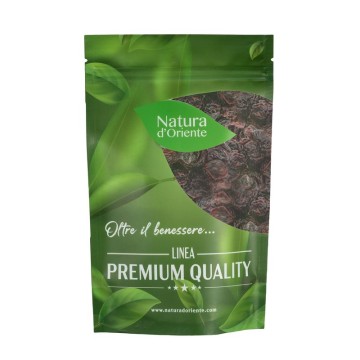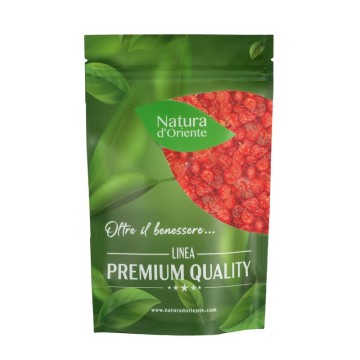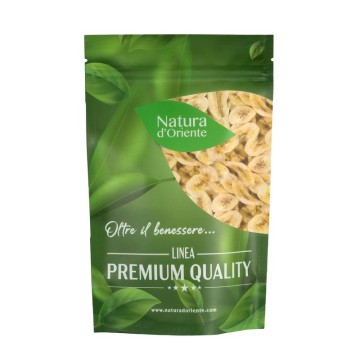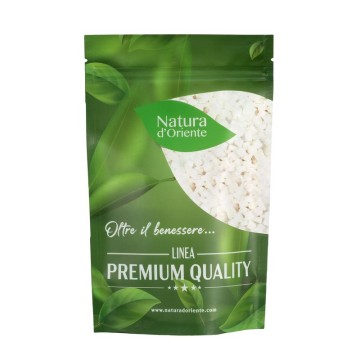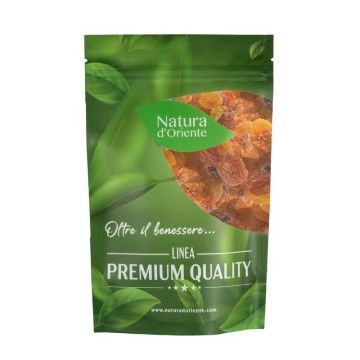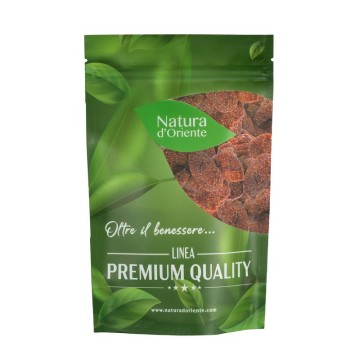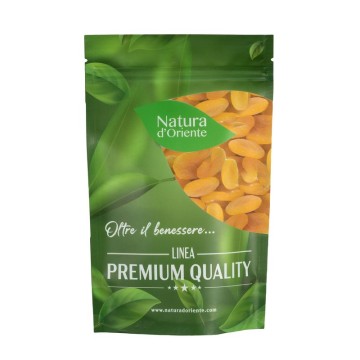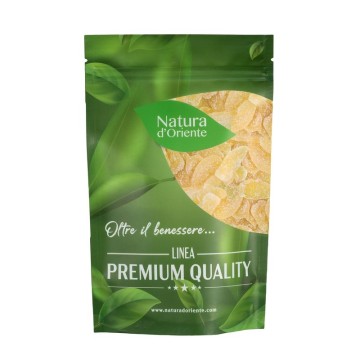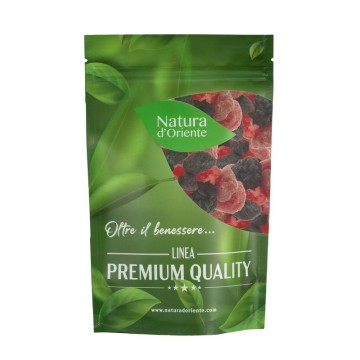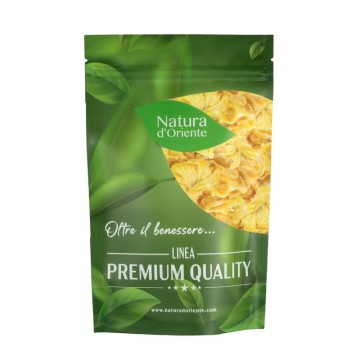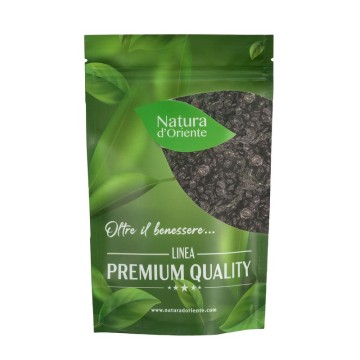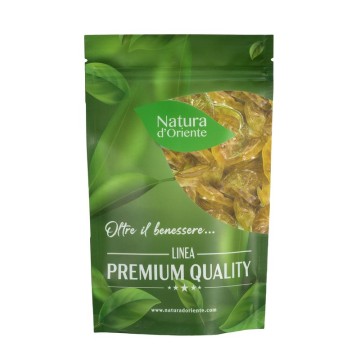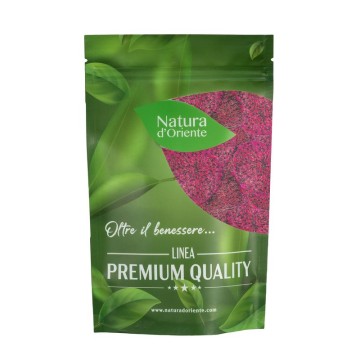Crispy cinnamon dried apples
Many benefits, few contraindications, and a success that has lasted for millennia.
The apple, in fact, is ra the most famous fruits for its nutritional values : an apple a day keeps the doctor away, says an ancient proverb!
Thanks to its properties, this food is a real ally of health, even in the dried version: let's see why.
Dried apples: properties and benefits
Dried apples are light, crunchy and delicious. They also provide various benefits for our health, thanks to the antioxidant substances, vitamins and mineral salts contained.
First of all, their best known benefit is digestive. Apples, dried or not, prevent constipation and keep you full for a long time, because they have a good number of fiber as fruits.
Other methods of preserving fruit generally eliminate the fiber content, but not the dehydration. Therefore, even dried apples contain a high amount of both soluble and insoluble fiber.
Soluble fiber keeps you full and prevents blood sugar spikes after meals.
Insoluble fiber keeps the gut clean and helps eliminate toxins and harmful bacteria from the gut.
It also helps against constipation and facilitates the digestion of meals, thanks to its content of malic acid - which gives the slightly sour taste typical of apples.
In terms of other nutrients, dried apples contain B vitamins which stimulate energy metabolism, improve hormonal balance and nourish the brain. They give energy to our body: pantothenic acid (vitamin B5) and pyridoxine (vitamin B6).
Pantothenic acid helps your body create energy from food, and is important in the production of hormones. Pyridoxine helps metabolize proteins, and in the creation of chemical neurotransmitters in the brain, which improve brain response and function.
Dried apples can improve cellular health, thanks to the fact that they are a rich source of antioxidants , particularly polyphenols. These are substances that help fight cell damage caused by free radicals, and thus prevent cellular aging.
Free radicals are molecules and atoms emitted by air pollutants, pesticides, alcohol and fried foods. Once absorbed by the body, they cause damage to the cell through a process known as oxidation: they take the cell's electrons, leaving it with damaged proteins, membranes and DNA. The polyphenols found in dehydrated apples are antioxidants that help damaged cells regenerate, and can neutralize free radicals.
Regarding the supply of minerals in the body, dried apples increase these vital substances to keep the body healthy. They contain potassium, which is essential for the correct functions of the brain and nervous system. This mineral must be replenished after excessive sweating - in the loss of fluids, potassium is also lost.
Dehydrated apples also contain sodium, which is essential for maintaining water balance in the body, and iron, which is valuable for creating red blood cells that carry oxygen in the blood to various parts of the body. Apples also contain trace minerals in limited quantities, such as selenium, copper and manganese.
Dried apples help maintain weight - an ideal snack for dieters. The calories are not many, compared to other nuts, and the apple is an ally to keep fit and take nuts.
Not only that, the apple has excellent whitening properties, so much so that chewed for a long time can contribute to cleaning the teeth at the end of a meal.
The version of crunchy dried apples with cinnamon also brings the benefits of this spice which also increases satiety and contains antioxidants useful for our well-being. It can be beneficial in fighting the presence of E. coli bacteria and some intestinal fungi and yeasts, thanks to its natural purifying properties.
Cinnamon, like other spices, can also prevent tissue damage and inflammation caused by high blood sugar levels. In these cases, in fact, the sugar binds to proteins and forms compounds called AGEs. These activate the immune system, which triggers inflammation and tissue damage. The antioxidant content of herbs and spices such as cinnamon can prevent the formation of AGEs and their effects.
Origins and History of cultivation
The apple tree was one of the oldest cultivated by man, already in the Neolithic period. It is a plant native to Central Asia, which spread to the Middle East, initially along the Nile valley in Egypt and, later, in the Greek territory.
The conquests of the Roman Empire in those territories spread the apple tree and its fruit throughout continental Europe; cultivation continued in the Middle Ages thanks to the peasants and monks who greatly appreciated the fruits. In this way the varieties and qualities of apples increased, which would have led, in the Renaissance period, to a large selection.
Following explorations in the so-called New World, from the sixteenth to the eighteenth century apple cultivation spread to North America, Australia and New Zealand. Plants imported from Europe led to the development of other crops, until today in which the apple tree is the most cultivated tree in the world. Especially for the goodness of the fruits, easily transportable thanks to their good storage capacity.
Apple is also an important fruit for human culture. On a symbolic level, we know that it is the protagonist of many legends and tales, in addition to the biblical tradition in which the apple makes Adam and Eve fall into temptation. Over the centuries the apple has been a symbol of love and fertility, also represented in the paintings of the Madonna and Child.
Another legendary apple is that of the Swiss hero William Tell, who hit it with an arrow on the head of his son, managing to save his life. The forbidden fruit becomes dangerous or prodigious in some fairy tales, such as in Snow White by the Brothers Grimm.
Even the sciences celebrate the apple that fell on the head of the scientist Isaac Newton: thus, he elaborated the law of universal gravitation!
In modern times we know the Big Apple, the nickname of New York, the Apple Corps, a record company founded by the Beatles, and the famous apple of the computer company Apple.
Plant and Fruit
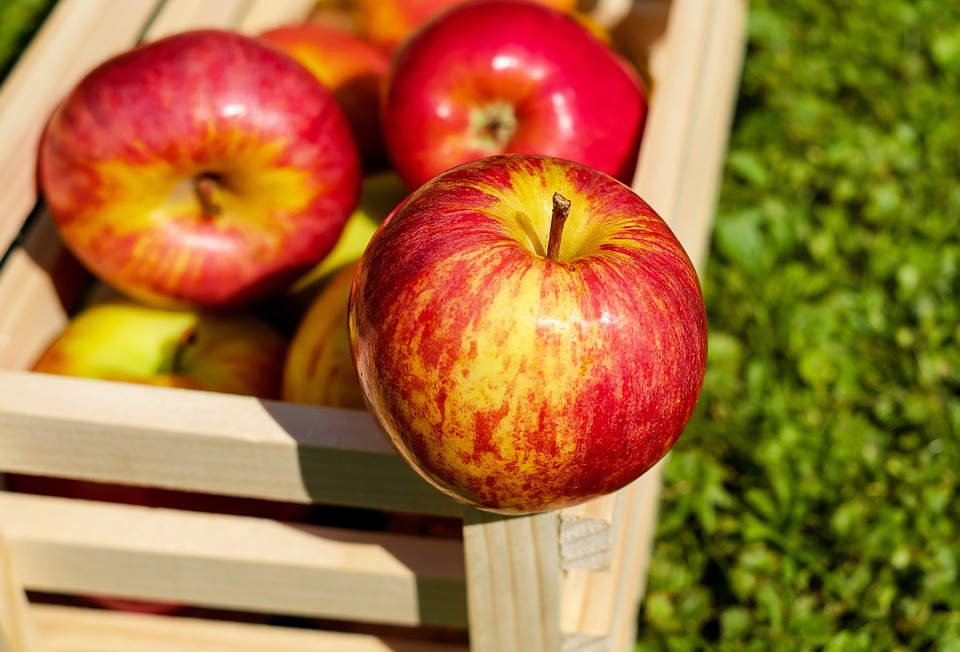 The Malus domestica plant is a tree of the Rosaceae family, native to Asia and spread all over the world.
The Malus domestica plant is a tree of the Rosaceae family, native to Asia and spread all over the world.
The resulting apple is its fleshy fruit; when harvested it is roundish, about 5-10 cm in diameter and can have a red, green or yellow color. Apples vary in size, shape and acidity depending on the variety and crop.
The apple tree blooms and bears fruit well in areas with a distinct winter period, and in the north, cultivation is limited due to low winter temperatures and a short growing season.
The land in which the apple trees grow must be well drained, and preferably on the hills where the climate allows colder and heavier air to flow into the valley below.
Nutritional values of Dried Apples with Cinnamon
Dehydrated apple chips make various nutrients bio-available to our body, with a low calorie content compared to other types of fruit - 363 kcal per 100 grams. This dehydrated fruit contains some fats (about 12%), provides minerals, vitamins, and fibers (about 8 g / 100 g).
Even in the dried version in apple, minerals are available such as potassium (about 400 mg / 100g), calcium (about 20 mg / 100 g), phosphorus (about 35 mg / 100 g), sodium (about 80 mg / 100 mg) and iron (about 1.5 mg / 100 g).
The food values of dried apple show good contents of vitamin C (about 3.5 mg / 100 g), vitamin K (about 3 µg), Vitamin B2 (Riboflavin - about 0.13 mg / 100 g) and Vitamin B-3 (Niacin about 0.90 mg / 100 g).
It also contains, per 100 grams, pantothenic acid (Vitamin B5 about 0.20 mg), pyridoxine (vitamin B6 0.10 mg) and substances such as Vitamin E (alpha-tocopherol - about 0.50 mg), lutein and zeaxanthin (15 µg).
How to consume crunchy dried apples in the kitchen or as a snack
This fruit is highly appreciated for its sweet and sour taste, which in the dehydrated version with cinnamon becomes even more delicious .
The crunchy dried apple slices can be useful as a snack with no added sugar, an ideal breaker for a snack between meals. In addition, like many dried fruit, the dried apple can be used in the preparation of energy bars for athletes.
The sugar-free dehydrated apple slices can be used in the kitchen for the preparation of yogurt to flavor, on fruit salads, in vegetable drinks or smoothies. Of course, the fact that they are crunchy dried apples makes them perfect for fragrant decorations on ice creams, cupcakes, muffins, cakes and other desserts maybe cinnamon - to double the aroma!
You can also add a few slices of crunchy apple with cinnamon, in the mix of cereals and dried fruit, for breakfast or snack.
Apples dried cann
![]()



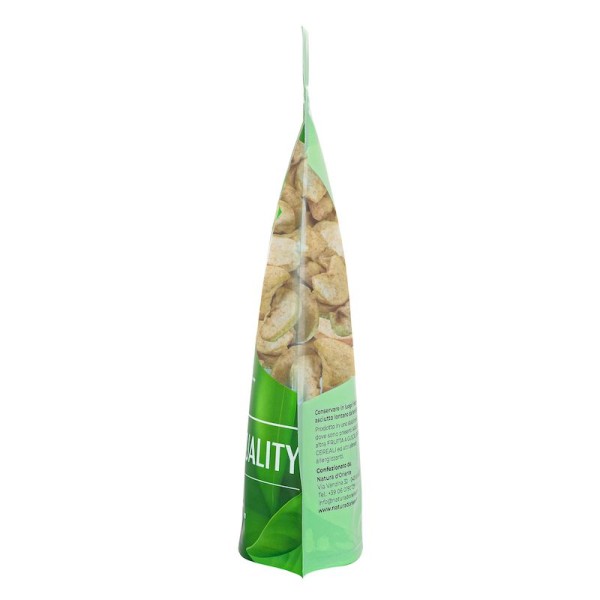







 No reward points for this product.
No reward points for this product.
 The Malus domestica plant is a tree of the Rosaceae family, native to Asia and spread all over the world.
The Malus domestica plant is a tree of the Rosaceae family, native to Asia and spread all over the world.

